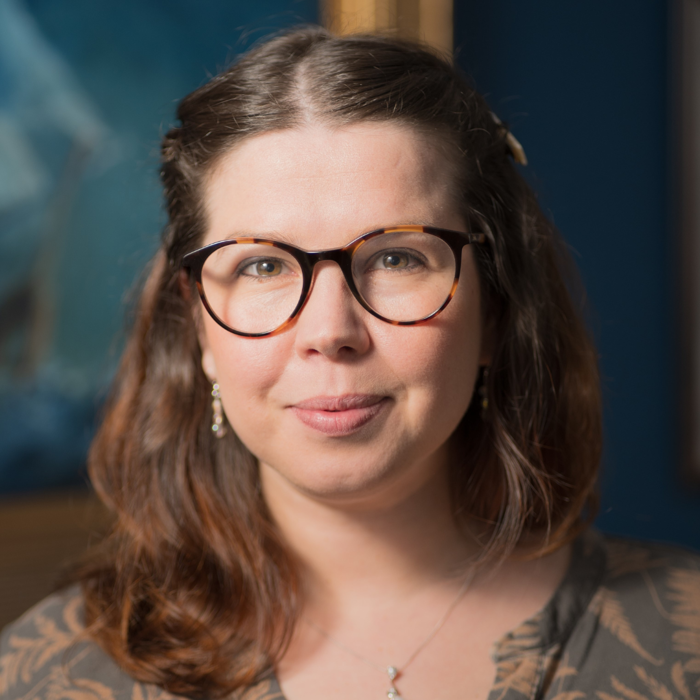Respiratory Aging and Its Effects on the Voice: Mechanisms and Training Approaches
Tuesday 17th December 2024, 5:00 PM - 7:00 PM (London Time)
As the larynx undergoes physiological changes with aging, vocal performance is often affected. Older adults may for example notice shifts in the quality of their voice or experience increased effort when speaking or singing. Additionally, age-related or disease-related changes in the lower respiratory system can reduce the amount of airflow and pressure needed for voicing, further compounding the vocal challenges faced by older speakers and singers.
With aging, some individuals may therefore benefit from approaches directly targeting the respiratory system – as a complement to more traditional vocal exercises – to enhance their voice quality and voice-related quality of life. In order to identify the most effective respiratory approaches, it is important to first understand how respiratory function impacts voice production in aging, and the mechanisms of action through which targeted respiratory exercises may improve voicing.
During this course, we will (1) describe the principal respiratory changes occurring with aging and their effects on voice production; (2) explain the different mechanisms by which some respiratory exercises may impact voice outcomes, with an emphasis on those that are particularly relevant in aging; and (3) provide a concrete example of a respiratory exercise that can be used to improve respiratory and voice outcomes, inspiratory muscle strength training.
By the end of this course, you will have a deeper understanding of the intricate interactions between the respiratory system and the larynx, and how these interactions can be enhanced to help mitigate some of the effects of aging on the voice.
🏷️ Price £30 (UK VAT inclusive)
🎥 Recording automatically sent to all who book (even if you cannot attend live)
▶️ Rewatch as many times as you like
📜 Certificate of attendance available
Maude Desjardins
Maude Desjardins is an assistant professor at University Laval and researcher at the Center for Interdisciplinary Research on Rehabilitation and Social Inclusion (Quebec, Canada).

Attend this course for as little as £22 as part of the Voice Professional Training CPD Award Scheme.
Learn MoreSorry, this is an archived short course...
We have plenty of upcoming short courses coming soon. See details of some of them below or look at the full list of short courses.

Monday 7th July 2025
2:00 PM - 4:00 PM
Tuesday 8th July 2025
2:00 PM - 4:00 PM
Wednesday 9th July 2025
2:00 PM - 4:00 PM
Friday 11th July 2025
2:00 PM - 4:00 PM
Monday 14th July 2025
2:00 PM - 4:00 PM
Tuesday 15th July 2025
2:00 PM - 4:00 PM
Wednesday 16th July 2025
2:00 PM - 4:00 PM
Friday 18th July 2025
2:00 PM - 4:00 PM
(London Time)
Introduction to statistics and working with quantitative data for Voice Professionals: 8-Session Online Bootcamp

Dr David Cane
This certificated statistics course is ideal for individuals interested in laying a solid foundation in quantitative research methods. By focusing on essential statistical principles, you will be equipped with the tools to understand and apply quantitative research techniques effectively. Statistics is a crucial component of quantitative research; mastering it will enable you to grasp quantitative methods more confidently and precisely.


Tuesday 15th July 2025
5:00 PM - 7:00 PM
(London Time)
Exploring the roots of the tongue: Ideas for performance

Walt Fritz
As a relative outsider looking into the voice and performance world, I witness the bell curve of thoughts and actions on how the tongue contributes to voice problems and how best to tame that tension. Traditional ways of taming tongue tension seem adequate (or would seem so, based on feedback), so what is different and new? In this short course for the Voice Study Centre, Walt Fritz will introduce the learner to variations on self-applied tongue stretches and exercises.


Wednesday 16th July 2025
2:00 PM - 4:00 PM
(London Time)
Emotion and Performing Accents and Dialects: why does Emotion Get in the Way?

Louisa Morgan
At points of heightened emotion, it is common for actors working in an accent to default to their natural speech. How do we help performers to avoid this issue and provide them and their directors with the confidence they need regardless of the emotional demands of the piece? What can we learn from research in vocal expression of emotion to help actors to embody the emotion and keep control of their voice and accent? Our very own Louisa Morgan will guide participants through the latest research and offer practical suggestions for working with performers needing to navigate this challenge.
